-
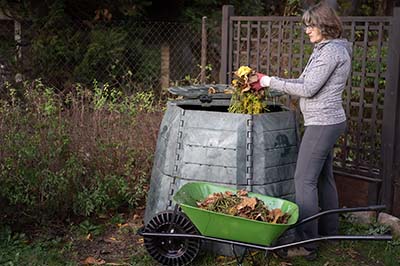
Maintaining a successful garden in Georgia involves ongoing care and attention.
-
Here are some helpful tips on watering, mulching, pruning, composting, harvesting, and selecting the right tools and equipment for the job:
- Consistent Watering: Water deeply and consistently to keep the soil evenly moist. In Georgia's warm climate, plants often require more frequent watering, especially during dry spells.
- Morning Watering: Water in the morning to allow plants to dry before evening, reducing the risk of fungal diseases.
- Drip Irrigation: Consider installing a drip irrigation system or soaker hoses to provide a consistent water supply directly to the root zone while minimizing water wastage.
- Mulch: Apply mulch around plants to help retain soil moisture. This reduces the need for frequent watering and helps regulate soil temperature.
- Organic Mulch: Use organic mulch like straw, wood chips, or compost. Apply a 2-4 inch layer around plants to suppress weeds and retain moisture.
- Mulch Depth: Be mindful not to pile mulch against plant stems, as this can lead to rot. Leave a small gap around the base of plants.
- Regular Pruning: Prune your plants regularly to remove dead or diseased branches, improve air circulation, and shape the plants. Use clean, sharp pruners for precise cuts.
- Pruning Tools: Invest in quality pruning tools such as hand pruners, loppers, and pruning saws. Ensure they are well-maintained and sharpened for clean cuts.
- Timing: Prune at the appropriate times for each type of plant. For example, prune fruit trees during their dormant season, and prune flowering shrubs after they bloom.
- Choose a Shady Location: Georgia summers can get hot, which can dry out your compost pile too quickly. Set up your compost bin or pile in a shaded or partially shaded spot to maintain moisture levels.
- Balance Green and Brown Materials: Aim for a balance of nitrogen-rich “green” materials (like fruit and veggie scraps, coffee grounds, and grass clippings) and carbon-rich “brown” materials (like dried leaves, straw, and cardboard). This balance will help speed up the decomposition process and reduce odors.
- Water and Turn Regularly: Georgia’s climate can dry out compost, so check the moisture level often, especially during hotter months. Your compost should feel like a wrung-out sponge. Turn it regularly to provide oxygen, which helps break down the materials more efficiently.
- Add Native Materials: Georgia clay and pine needles are abundant in the area and can help enrich compost if used correctly. Use small amounts of red clay soil to add minerals, but keep pine needles to a minimum as they decompose slowly.
- Consider a Compost Cover: Heavy rains are common in Georgia, especially during the summer. A cover or tarp can help keep your compost from becoming overly soggy, which can slow down the composting process and create a mess.
- Keep Pests in Mind: Raccoons, opossums, and other wildlife might be attracted to your compost pile. To deter them, avoid adding meat, dairy, or oily foods, and consider using a bin with a lid if pests become an issue.
- Timing: Harvest fruits and vegetables at their peak of ripeness for the best flavor and quality. Frequent harvesting encourages continuous production.
- Gentle Handling: Handle harvested produce gently to prevent bruising or damage. Use appropriate harvesting tools, like shears or scissors for delicate herbs.
- Harvest Baskets: Use harvest baskets or containers with gentle cushioning to transport your freshly picked produce without causing harm.
- Gardening Gloves: Invest in comfortable, durable gardening gloves to protect your hands while working in the garden.
- Hand Tools: Acquire essential hand tools like trowels, hand pruners, and weeding tools for precise and efficient work.
- Garden Hose: Choose a good-quality garden hose with adjustable spray settings to facilitate watering tasks.
- Wheelbarrow or Garden Cart: A wheelbarrow or garden cart is invaluable for moving heavy loads of soil, mulch, or harvested produce.
- Quality Pruners and Shears: Invest in high-quality pruners and shears with sharp blades to make clean cuts and reduce strain on your hands.
- Garden Fork and Spade: These tools are essential for turning soil, digging planting holes, and lifting plants.
- Garden Hat and Sunscreen: Protect yourself from the sun's harsh rays with a wide-brimmed hat and sunscreen, especially during hot Georgia summers.
- Kneeling Pad or Garden Stool: These provide comfort and support while kneeling or sitting during garden tasks.
Watering:
Remember that the right tools and equipment can make gardening more enjoyable and efficient. Regular maintenance of your tools and equipment will extend their lifespan and ensure they continue to perform well. With proper care and attention to these maintenance tasks, your Georgia garden can thrive and provide a bountiful harvest.
-

Sage
Known for its savory flavor and soft, velvety leaves, sage is a popular herb in many types of cuisine, from Italian to American. In Georgia, sage is grown in a variety of varieties, from common sage to pineapple sage. More
-

Oregano
Oregano is a popular herb that is grown in Georgia. The state has a warm, humid climate that is well-suited for oregano production. Oregano can be grown in a variety of settings, including in gardens, greenhouses, and fields. More
-

Mint
In Georgia, mint is grown in a variety of varieties, from classic spearmint to peppermint and chocolate mint. With its cool, refreshing flavor and versatility, mint is a must-have herb for any home cook. More
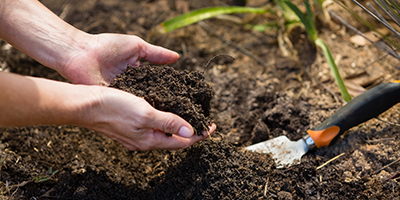




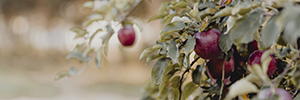
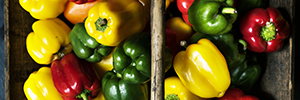
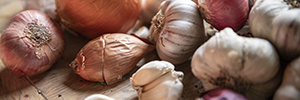
 DIY GARDEN PROJECTS
DIY GARDEN PROJECTS gagarden.com/blog.html
gagarden.com/blog.html